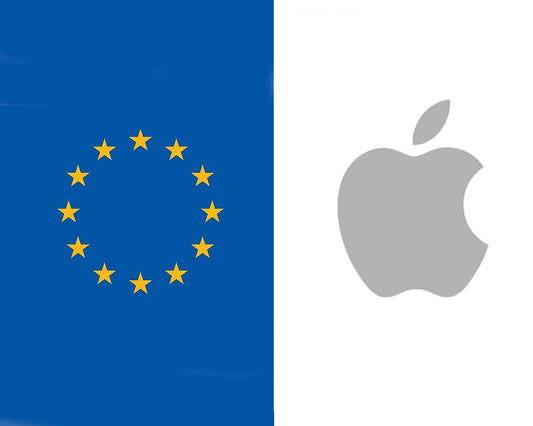EU regulators are taking aim at Apple for dropping web apps from the iPhone home screen
Share
Another day, another investigation into Apple by the European Union.
European Union regulators have taken steps to investigate Apple's decision to remove support for web apps within the EU. They've sent inquiries to both Apple and app developers to better understand the impacts of this move.
A spokesperson for the European Commission mentioned they would be looking into the compliance packages of all gatekeepers. They would, in particular, be investigating any issues related to progressive web apps.
This all comes after Apple announced it would officially drop support for progressive web apps (PWA), also known as homepage web apps. These apps could be installed from alternative app marketplaces and launched from your iPhone's home screen, send push notifications, and store memory separately from a web browser. The significant part for antitrust regulators is that this feature acted as a way for developers to bypass Apple's App Store and all the commission fees that come with listing on the App Store.
The new change will make these homepage apps function like bookmarks rather than being capable of full app functionality, a change that will affect the user experience on millions of devices.
The tech company mentioned that removing the functionality of PWAs would aid their efforts to comply with the Digital Markets Act. They argued that allowing users the option to use alternative browser engines outside the default web browser Safari poses a security threat, raises privacy concerns, and increases the avenues for malware compared to using the default browser.
What is the history between the European Union and Apple?
Many people will note this is not the first time Apple and the European Union have butted heads. First, there was the imposed charging standard which led to the implementation of USB-C for all new iPhones within the EU. This change was focused on removing the proprietary Lightning port, making a better experience for users as they no longer require a separate charger for their iPhones.
Not too long after, the EU passed a law named the Digital Markets Act (DMA) allowing support for third-party app stores. These alternate app stores can offer third-party payment options, new app distribution channels, and a way around the commission-based model that would take 30% of all app purchases and any in-app purchases, a feature deemed as 'gatekeeping' by the EU.
Apple is also facing its first fine from the EU for violating regulations concerning access to their music streaming service, Apple Music.
What happens now?
It's clear Apple's main concern relates to the potential security risks that third-party homescreen apps can provide, especially third-party browsers which can lead to malicious content gaining access to critical features. Along with Apple's focus on maintaining their users' privacy measures, they will proceed with removing support for homescreen applications. These applications will instead function just like bookmarks, which will lead to a website offering more protection against potentially complex security threats. Only time will tell if the EU deems this to be 'gatekeeping' and against the DMA. The investigation has only just started, and a lot can change in only a short amount of time.





